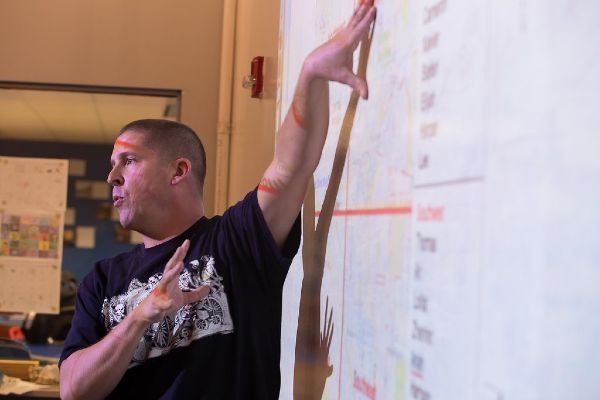Article by Greg Bamford, Watershed School
When I was in ninth grade, I enrolled in The Overlake School, an independent school just outside Seattle. I spent one period a day working in the library during my first semester as part of the school’s service requirement. When the library received a new television cart, it arrived in pieces, and my job was to put it together. I wasn’t good with tools, but a member of the maintenance team — a kind man who was as much an educator as anyone I learned from in the classroom — helped me reason it through and stayed actively present even as I did the actual assembly.
I remember thinking how different that experience was, one of many moments that made my high school education special. Those moments of difference are critical to an independent school’s identity.
This is one of the lenses I bring to my work as head at Watershed School, a young, innovative school in Colorado. It’s always been a magical place for learning, but it faced a challenging financial situation when I arrived in 2014. Enrollment was down, and we weren’t managing our money efficiently.

In addressing this challenge, I found myself tackling a central question for any school: What is the right partnership between the head of school and the business office? What I discovered, sometimes through deliberate strategy and sometimes through trial and error, was the power of aligning myself, the business office and admissions around a compelling vision of our “mission-appropriate customer.” This vision enabled us to clarify our message, focus our outreach and, ultimately, grow our enrollment by 82 percent. It has also helped us have better conversations about where to spend our dollars and where to cut back.
In the process, we became more comfortable with being a niche product — one that’s not for everyone but is incredibly compelling to the right tribe.
Clarity and Strategic Conversations
Great schools must, at times, embrace truths that seem countercultural.
In Watershed’s case, we believe in learning through failure and adversity; that learning happens best when academics are connected to the world outside of campus; that who you are is as important as what you know. We’ve built our program around these beliefs.

For instance, we define our “mission-appropriate customer” as a student who wants to go beyond the textbook and explore the material in deeper ways. She or he is often more interested in the process of learning than in grades or college acceptances. Our message, in turn — what authors Chip and Dan Heath call the “sticky message” — is that Watershed students learn with a purpose: to create solutions to real-world challenges.
Some parents tour our school and ask what proportion of our graduates move on to the Ivy League. These moments are opportunities to educate parents about who we are and who we aren’t. All Watershed graduates are prepared for selective colleges and universities, but we’ve made some deliberate choices that families need to know about up front. (We don’t, for example, offer AP classes.)
Some prospective families leave at this point, and we’ll happily refer them to one of the many great schools in our market. But others want a different kind of experience for their child. We find them nodding and eager to enroll.
We know that spending more money isn’t the answer everywhere. Schools must re-examine every line item to ensure it offers value for their mission and market.
On the expenses side, this clarity led to more strategic conversations about our budget. We invested in our May Term program, making it a signature global study program with an all-inclusive cost structure. This had incredible resonance with our desired customer and leveraged a true competitive advantage: our faculty’s unusual ability to run experiential programs in-house. When families learned that the high school trip to China is included in tuition, for example, they began to see us as a great value despite our premium price point.
We also know that spending more money isn’t the answer everywhere. Schools must re-examine every line item to ensure it offers value for their mission and market.

In Watershed’s case, we didn’t follow some families’ requests to add an athletics program or extensive after-school programs. Athletics — though powerful for many students and good investments for many schools — aren’t part of our value proposition. We also reduced or eliminated programs that our customers perceived as low quality or didn’t value, even if faculty did. As many wise thinkers have said, strategy is the art of sacrifice.
Today, Watershed is fully enrolled and building cash reserves for our future. More importantly, I think we’ve gotten even better as a school.
As we plan for future growth and development, I keep in mind something one of our wonderful trustees once said: “Don’t sand off all the rough edges.” She’s right, of course. The magic of a school is often in its unique spaces. We’ve unleashed a lot of power by achieving a common vision of our program and what makes it distinct. Our financial turnaround is proof.





